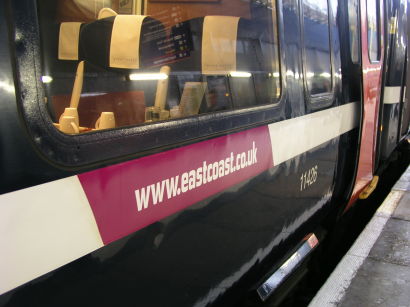LABOUR has said it is considering keeping the East Coast franchise in public hands, although as things stand the Department for Transport is preparing to return the operation to the private sector in December next year. A new East Coast franchise, once let, would be difficult and expensive to reverse until it had run its natural term, which could be ten years or more.
Labour leader Ed Miliband said there was growing 'resentment' among passengers, who see reports of train operators' profits while fares continue to rise ahead of inflation. January's fare increase has been set at last July's retail price index plus 3 per cent, which will produce an average increase in regulated fares of 6.2 per cent.
Mr Miliband said: “We are open to all solutions on this. And I think the really important thing in this is not to be dogmatic, to say it must be private sector or it must be public sector. Let’s look at what’s going to work for the railways.”
Directly Operated Railways, the DfT-owned subsidiary which presently owns the East Coast Main Line Company Limited, will be offering the company to the private sector as a going concern.
Until now, bidders for franchises have usually set up a new company for the purpose of lodging their bid. The successful bidder’s company then signs the franchise contract and becomes the operator, while the losers’ companies are wound up when the competition is over.
But a change to the process has been revealed in the latest statement of accounts from DOR, which said: ‘The Company exists to manage Train Operating Companies that are returned to temporary public ownership. It is currently anticipated that the East Coast franchise will transfer to a new private operator around the end of 2013, and the consultation process was initiated for this by the Department of Transport in June 2012. Unlike previous franchise changes/transfers, the Company “East Coast” will be the subject of a business sale to a new private sector owner.’
This process seems likely to simplify the franchise handover because most existing contracts and other agreements, including employment contracts, would not need to be transferred to a new legal entity.
DOR revealed that its operating profit from East Coast grew by 7 per cent in 2011-2012. Turnover for the year to 31 March 2012 was £665.8 million (2010/11: £645.5 million), while operating expenditure was £661.0 million, yielding a gross profit of £195.7 million (2010/11: £182.8 million). When ‘service payments’ to the DfT had been deducted, there was a pre-tax profit of £7.1 million (2010/11: £6.5 million).
The number of passenger journeys also rose by 2.1 per cent, to 18.9 million.


